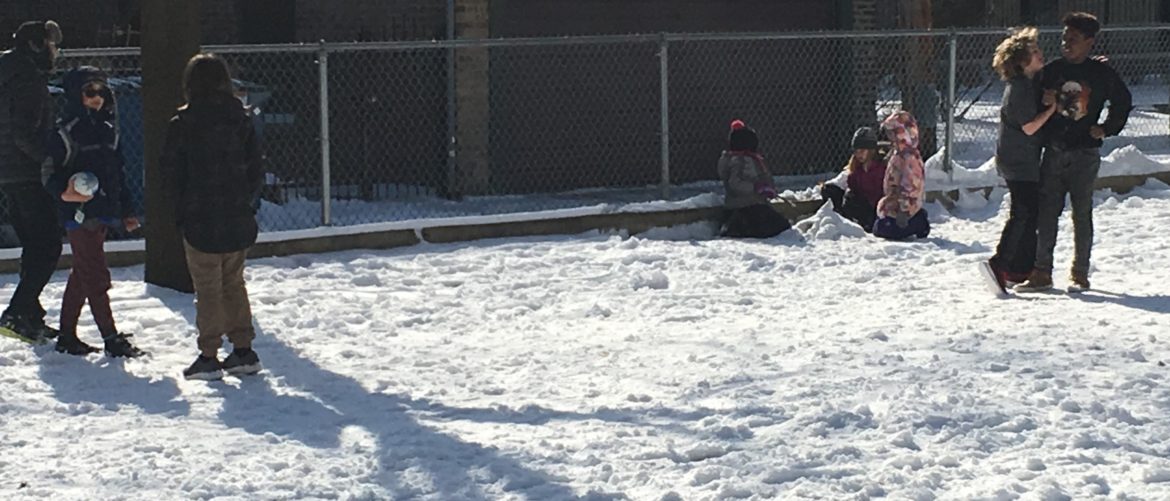I went to recess today for the first time in several weeks, and found myself reflecting on actions of some of our boys with pride.
This recess, a group of our boys were playing a long game of touch football in the snow. They called fouls, passed, ran, and chased for almost the entire recess period. This group of boys didn’t seek or welcome adult refereeing — they were OK organizing the game itself. Older kids–mostly grade 4 and up, as this group was–are developing the emotional maturity and ability to sustain attention to detail necessary to negotiate and follow rules fairly and consistently without help.
But I was keeping an eye on the game from a distance. Football somewhat deserves its bad rap as dangerous and callous to injury and wanted to make sure that the boys weren’t tackling each other or getting into conflict over the game.
Quite the opposite happened. I watched the game and saw cheering, good-natured arguments and kids helping each other up after they fell in the snow. One first grader had joined in, and, as happens with younger kids, started to cry when a call went against him. In the macho context of a boys’ football game, you might expect the players to shame or ignore him for crying, or attempt to get him to leave the game. But instead the game stopped. An older child went over, put an arm around him and gently suggested some strategies for feeling better. A middle school boy came up behind him and squeezed him on the shoulders. Several other boys inquired what was wrong, and yet another offered to sit out until this boy felt like playing again. There was no shaming, no reaction to tears other than concern, and the other boys gave him space to figure out what he needed emotionally (which was to go off and ask a teacher for some math games to play.)
Boys have deep and complex emotional lives. They are capable of imagination, of grief, of anger, and also of compassion and caring. I am so glad that our boys can be, in such a matter-of-fact way, emotionally caring about each other. Boys will be boys — and that means whole, emotionally-available people.


Karen Carney
is the head of school. Karen’s career demonstrates a rich and diverse set of skills: project oversight, curriculum development, educator training and mentoring, and classroom instruction. Prior to coming to Chicago Friends School, she worked as a senior specialist in science curriculum for American Institutes for Research. Before this, she oversaw educational programming at the Adler Planetarium, first as its director of education and then as associate vice president for visitor experience and learning. She has also worked in instruction and teacher development at the University of Illinois at Chicago’s Learning Sciences Research Institute and has authored more than 20 scholarly papers, book chapters, and conference presentations.
Karen is an active, dedicated Friend (Quaker) and has held various leadership positions at the Evanston Friends Meeting. She enjoys baking, cooking, and painting and is a member of the Playmation improv comedy team.